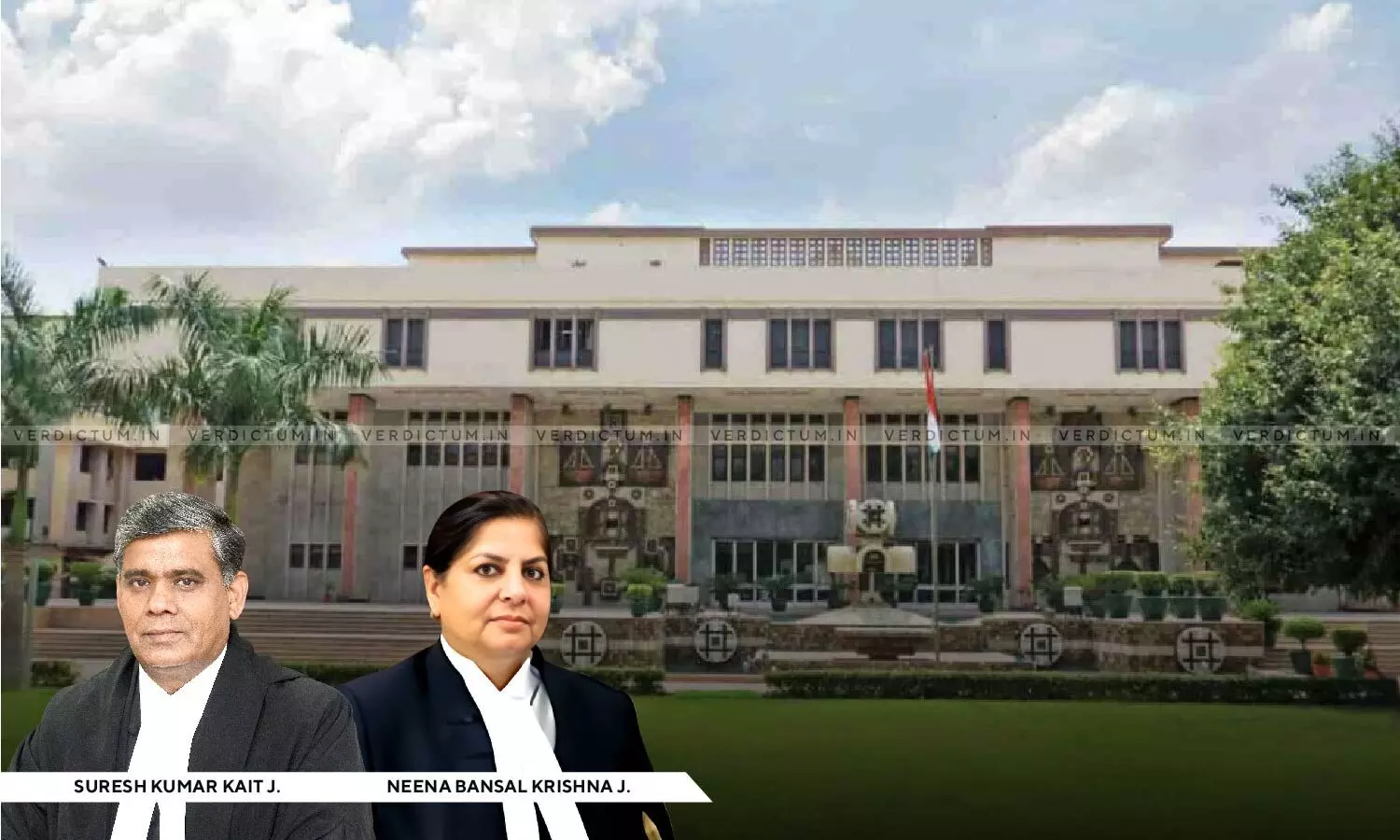
Section 34 A&C Act| Court Cannot Re-Interpret Contract When Arbitrator's Finding Is Plausible & Well-Reasoned: Delhi HC
 |
|The Delhi High Court has held that while considering a petition under Section 34 of the Arbitration and Conciliation Act, 1996, the Court cannot re-interpret a contract between parties when finding of the Arbitrator is plausible and well-reasoned.
The Division Bench of the Delhi High Court was considering an appeal under Section 13 of the Commercial Courts, Commercial Division and Commercial Appellate Division of High Courts Act, 2015, against the order of the Single Judge allowing the objections under Section 34 of the Act and setting aside the Arbitrator’s Award.
The Bench comprising Justice Suresh Kumar Kait and Justice Neena Bansal Krishna said, “… the scope of grounds of challenge of an Award under Section 34 of the Act is limited and not equivalent to an appeal. From the legal principles enumerated above it is apparent that it is not within the scope of Section 34 for the learned Single Judge to have re-interpreted the contract and substituted its finding for that of the Arbitrator’s when the finding of the Arbitrator is plausible and well-reasoned.”
Senior Advocate Sanjiv Sen represented the appellant while Senior Advocate Ritin Rai represented the respondent.
Brief Facts -
The appellant, a private company was the sole and exclusive owner of a land along with the old construction thereon, commonly known as ‘Jaipuria Mill’ in Delhi (Suit Property). The appellant and the respondent company entered into an agreement for development of a Residential-cum-Commercial Complex on the said land in collaboration (Project) and the large portions of the lands were in possession of the tenants both commercial and residential, as was mentioned in the Agreement itself. Out of approximately 200 tenancies, more than a majority were commercial and the appellant in terms of the Agreement, executed Special Power of Attorney and a General Power of Attorney in favour of the representative of the respondent in terms of Clause (1) of the Agreement.
The case of the respondent was that in terms of the Agreement, all the requisite steps were to be taken by it to seek eviction of the tenants and it was expected that necessary sanctions would be obtained within a period of 60 months which shall commence from the day of getting the tenants vacated. It was claimed by the respondent that the appellant chose to act capriciously and deliberately failed to perform its reciprocal promises. The appellant denied the entire claim in toto and asserted that it was the respondent who had failed to perform its obligations. Aggrieved by the revocation of the Special Power of Attorney and a General Power of Attorney, the respondent initiated Arbitration proceedings and in response to the invocation of the Arbitral clause, the appellant terminated the agreement. The respondent being aggrieved by the award passed by the Arbitrator, approached the Court, whereby, the Single Judge set aside the arbitral award. Hence, the appellant was before the High Court.
The High Court after hearing the contentions of the counsel observed, “The scope of grounds on which an Arbitral Award can be challenged under Section 34 of the Act is limited and are circumscribed by Section itself and the judicial precedents interpreting the said provision. … it is evident that a plausible interpretation has been given to the terms of contract which is not against the “Public Policy” and does not shock the conscience of the Court. … The other ground of “patent illegality” is applied when there is a contravention of the substantive law of India, the Arbitration Act or the rules applicable to the substance of the dispute.”
The Court noted that a change that has been brought in by the Amendment Act, 2015 is that the construction of the terms of a contract is primarily for an arbitrator to decide, unless the arbitrator construes the contract in a manner that no fair-minded or reasonable person would; in short that the arbitrator's view is not even a possible view to take.
“Also, if the arbitrator wanders outside the contract and deals with matters not allotted to him, he commits an error of jurisdiction and would fall within the new ground of patent illegality added under Section 34(2A). … It was further explained that a finding based on no evidence at all or an Award which ignores vital evidence in arriving at its decision would be perverse and liable to be set aside on the ground of patent illegality. Section 34 (2)(a) does not entail a challenge to an arbitral award on merits”, added the Court.
Accordingly, the High Court allowed the appeal and set aside the order of the Single Judge.
Cause Title- Raghunath Builders Pvt. Ltd. v. Anant Raj Limited (Neutral Citation: 2023:DHC:8143-DB)